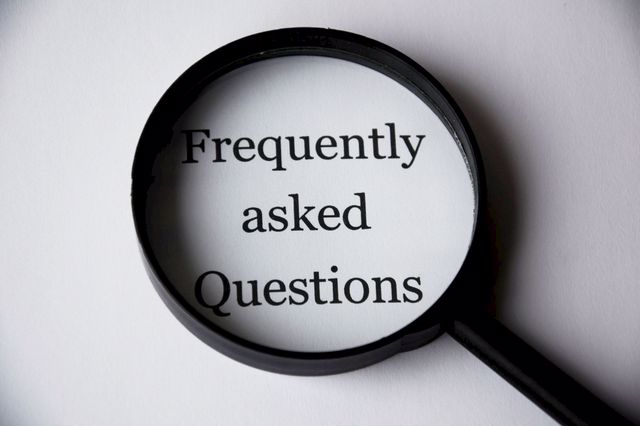Don’t start looking in the Bible for the answers it gives. Start by listening for the questions it asks. We are much involved, all of us, with questions about things that matter a good deal today but will be forgotten by this time tomorrow…but at the same time we tend to lose track of the questions about things that matter always, life-and-death questions about meaning, purpose, and value. To lose track of such deep questions as these is to risk losing track of who we really are in our own depths and where we are really going. There is perhaps no stronger reason for reading the Bible than that somewhere among all those India-paper pages there awaits each reader…the one question which…is the central question of his own life…When you hear the question that is your question, then you have already begun to hear much. Whether you can accept the Bible’s answer or not, you have reached the point where at least you can begin to hear it too.
–Frederick Buechner, The Magnificent Defeat
I have been thinking about something one of my supervisors said to me during my training as a counselor: “Gary, the best questions you can ask a client are the ones that you really don’t know the answer to.” I’ve tried to follow that advice, and not just in my work with clients. Like most really good advice, it works in all the other relationships in my life.
I agree with Buechner. I believe that when “you hear the question that is your question, then you have already begun to hear much.” I believe that the questions we ask and what we allow those questions to do with us can put us in touch with “our own depths and where we really are going.” But for them to do their work, well, they have to be really good questions. They have to be questions to which we really don’t know the answers.
Maybe there’s more to it than that. Maybe the best questions are not just the ones to which we don’t know the answers; they are the questions that don’t even have an answer.
We seem to think that asking a question implies having an answer. But maybe asking a question doesn’t mean that someone, the asker or the receiver of the question, has an answer. But those really good questions to which we don’t have an answer or the really good questions that don’t have an answer at all—I wonder if what those questions can do is put us on an adventure of exploration and discovery of something new, vital, and creative.
Can asking questions go beyond giving us answer that do nothing more than give us new stances and new beliefs or confirmation of the old stances and old beliefs? Can these really good questions give us a new experience and a new way of seeing? Can these really good questions go beyond ideas, beliefs, and stances, and give us a glimpse into the heart and soul of the other? Can these really good questions not only build knowledge but also connection and community?

It seems to me that the world in which we live is suffering from a lack of really good questions and what those questions can do to each of us and the relationships we have with this world in which we live. It seems to me that we really aren’t a question-asking society and culture. We are much more comfortable with statement-making than question-asking.
Think about most of our conversations. They begin with someone expressing a fact, idea, or opinion. The conversation continues when someone else reacts or responds to, agrees or disagrees with, supports or challenges the previous statement with another statement. And so, the conversation unfolds as a barrage of statements in response to whatever we think the other person means or intends. If we do ask a question, it is usually to clarify or to challenge, but very rarely to understand.
In many of our conversations, we assign our stance, our point of view, as privileged or more closely connected to the truth. And so, most of the questions in our conversations are asked from this privileged stance. They are designed to explore the level of agreement or disagreement from the other to what we are saying. The goal is to produce a change in the other or to resist the influence of the other and his/her point of view.
I don’t think this is done in a mean-spirited or heavy-handed way; I think it is just the basic make-up, the basic assumption of many of our interactions. And these interactions result in relationships that may not be meaningful or nurturing. In fact, these types of interactions have become so dominant that I wonder if they are stifling the spirit of all of us and the society and culture in which we live.
Consider, for example, political campaigns. Whether done in a civilized or heavy-handed way, the goal of most political speeches and debates is to speak from a privileged position against the position of the opponent that is anything but privileged and close to the truth. But this is not a dynamic that is reserved for political campaigns. We can see it among religious groups, spouses, family members, co-workers, and friends. It is present in any conflict, disagreement, or argument that seems to go on and on without any sign of resolution or reconciliation.
How can we change this? What would happen if we started asking these really good questions? What would happen if we did our conversations and interactions from a new point of view? What would happen if we went into conversations that were genuine dialogues, that offered the possibility, even the expectation, that something new, fresh, and creative would come to life?

I believe there are ways that we can have these life-giving conversations. Let me offer you an image that comes from the world of counseling. Some approaches to counseling propose that the counselor take a “not-knowing” stance with counselees and what they are sharing. This stance assumes that while counselors have some ideas and beliefs about what is happening with clients, it is the clients who are the real experts on what is happening in their lives.
So, if I adopt a not-knowing stance in my conversations, my goal is to communicate an abundant and genuine curiosity. From this curious place, I constantly express a need and desire to know more about what another person is saying. I am taking what the other person says seriously because I really believe it is the only way I can know and understand what they are sharing.
I give primary importance to the other person’s world-view, meanings, and understandings. No, I don’t set aside or dismiss my own experiences and meanings; instead I try to “bracket” my own experience for a time to allow plenty of space for the experiences and meanings of the other person to have full voice, a voice full enough that it can speak to me.
So how does this help? What happens when a conversation unfolds from this not-knowing stance? When people or groups talk this way, when they ask not-knowing questions, when they ask questions to which they really don’t know the answers, when the meanings and experiences of each person are given room to live and breathe—when all of these things happen, there is the potential for a meaning or experience to emerge that is new, fresh, vital, and creative. And because it emerges from this “not-knowing”, curious stance, there is a good chance that both sides will see its value and what it has to offer, even when it is different from the meanings and experiences of either side.
In the context of the world-view, beliefs, ideas, and understandings of other people, the experiences of their lives, and the meanings they give them, make sense. Are we willing to be led by other people into their world that supports what is meaningful and valuable for them? Are we willing to let other people share not only their ideas but also the story of how these ideas inform and give meaning to their lives? Are we willing to assume that other people have something to say, and that this something makes sense and has meaning and value within the context of their life stories?

Finally what does all of this have to do with our faith journey? Let me begin to answer that question by sharing some words from Anthony DeMello, who was a pastoral counselor and spiritual director from India:
What does it mean to love? It means to see a person, a thing, a situation, as it really is and not as you imagine it to be, and to give it the response it deserves. You cannot love what you cannot even see.
It is a sobering thought that the finest act of love you can perform is not an act of service but an act of contemplation, of seeing. When you serve people you help, support, comfort, alleviate pain. When you see them in their inner beauty and goodness you transform and create.
You cannot love what you cannot see afresh. You cannot love what you are not constantly discovering anew.
From the place of our Christian faith, we are not called, ultimately, to learn, to understand, to clarify, or to correct. Our ultimate calling is to love. Our ultimate calling is to move beyond the labels we put on people, labels that restrict our ability to see the wonder and beauty of the other, even the other who is our opponent or our enemy.
But the only way we can see this wonder and beauty is to create a real space in our lives and in our hearts where others can be, really be, who they are and want to be, not who we wish they were. And I believe this “not-knowing” stance offers us the chance to live out the kind of love that DeMello describes. I know that the world is crying out for this kind of love.
And it can begin with asking really good questions.
